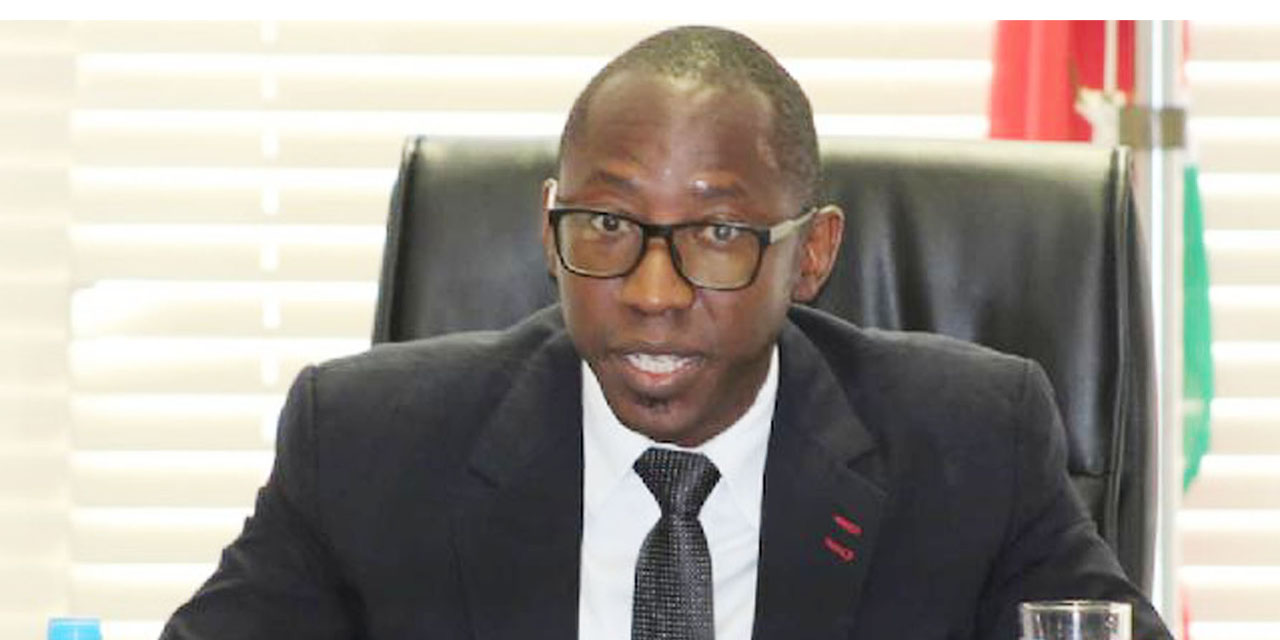Niël Terblanché
The Erongo region is taking determined steps to confront the scourge of gender-based violence (GBV) with the launch of the Erongo Regional Gender Permanent Task Force to address one of the most pressing social issues facing all Namibians.
The initiative, launched by the Erongo regional governor Neville Andre in Swakopmund on Thursday morning, is a direct response to the rising tide of GBV, particularly violence against women and girls, in the region.
“This task force is part of a broader national strategy, in line with Namibia’s National Gender Policy and National Plan of Action on GBV, aimed at curbing this pervasive issue,” he said.
In his address, Andre painted a sobering picture of the situation.
“In Erongo alone, GBV cases have consistently ranked among the top ten criminal cases, with the past year seeing a troubling increase in reports of domestic violence and sexual assault,” he said.
He added that these statistics are, however, believed to only scratch the surface, as many victims remain silent due to fear, stigma, and a lack of support services.
Andre stressed that the effects of such violence are deeply felt, not just by the victims, but by families and communities, leading to cycles of trauma, abuse, and poverty that can last for generations.
Despite the numerous legal frameworks and policies in place, including the Combating of Domestic Violence Act and the Combating of Rape Act, the governor acknowledged that the measures currently in place are not enough.
“The persistent rise in GBV cases suggests that more proactive and coordinated efforts are needed. This is where the new task force will play a pivotal role, working to ensure that Namibia’s legislative frameworks are complemented by community-based interventions and stronger support systems,” he said.
The Erongo Regional Gender Permanent Task Force seeks to engage a wide range of stakeholders in its efforts to tackle GBV.
Government ministries, civil society, traditional leaders, religious communities, the private sector, and international partners are all expected to collaborate in developing solutions.
Andre said that the task force aims to address not just the symptoms of GBV, but the root causes, which include entrenched gender stereotypes, power imbalances, and harmful social norms that perpetuate inequality and violence.
He also stressed the importance of including men and boys in the fight against GBV, noting that true progress can only be made if they are seen as critical allies in dismantling gender stereotypes and promoting respect and equality.
“Changing attitudes and fostering understanding from an early age are seen as key to preventing future violence,” he said.
According to Andre, the task force will focus on three primary areas: strengthening prevention efforts, improving support services, and enhancing law enforcement and justice.
“Prevention will involve education and awareness campaigns aimed at changing societal attitudes towards gender and violence,” he said.
He added that there is a strong focus on community-based programs that promote non-violence and equality, teaching young people, especially boys, to respect and value others regardless of gender.
In terms of support services, the Namibian government, in partnership with non-governmental organizations, is committed to expanding access to healthcare, legal aid, shelters, and counselling services for GBV survivors.
This is especially important in rural areas, where such services are often limited.
“The establishment of GBV Protection Units at police stations, such as the one in Swakopmund, has been a critical step forward, providing victims with immediate protection and access to justice,” he said.
The Erongo Regional Gender Permanent Task Force will also prioritise enhancing the law enforcement and justice system to ensure that GBV cases are properly investigated and that justice is served.
Andre called for a continued commitment from the police and judiciary to hold perpetrators accountable, warning that allowing impunity would only embolden those who commit these violent acts.
The launch of the task force is not seen as a solution in itself, but rather as a starting point for more robust, coordinated action.
“Our region, our communities, and our families deserve better,” he said while stressing the need for everyone in society to take responsibility for fighting GBV.
He added that gender-based violence can no longer be tolerated and that this collective effort is essential for creating a future where everyone, regardless of gender, can live free from fear, violence, and oppression.
According to Andre, the establishment of the Erongo Regional Gender Permanent Task Force is a major step towards building a safer and more equitable society.
He said that with its multi-sectoral approach, engagement of men and boys, and focus on prevention, support, and justice, there is hope that the region can begin to turn the tide on gender-based violence, ensuring that all individuals have the opportunity to live in dignity, safety, and peace.




